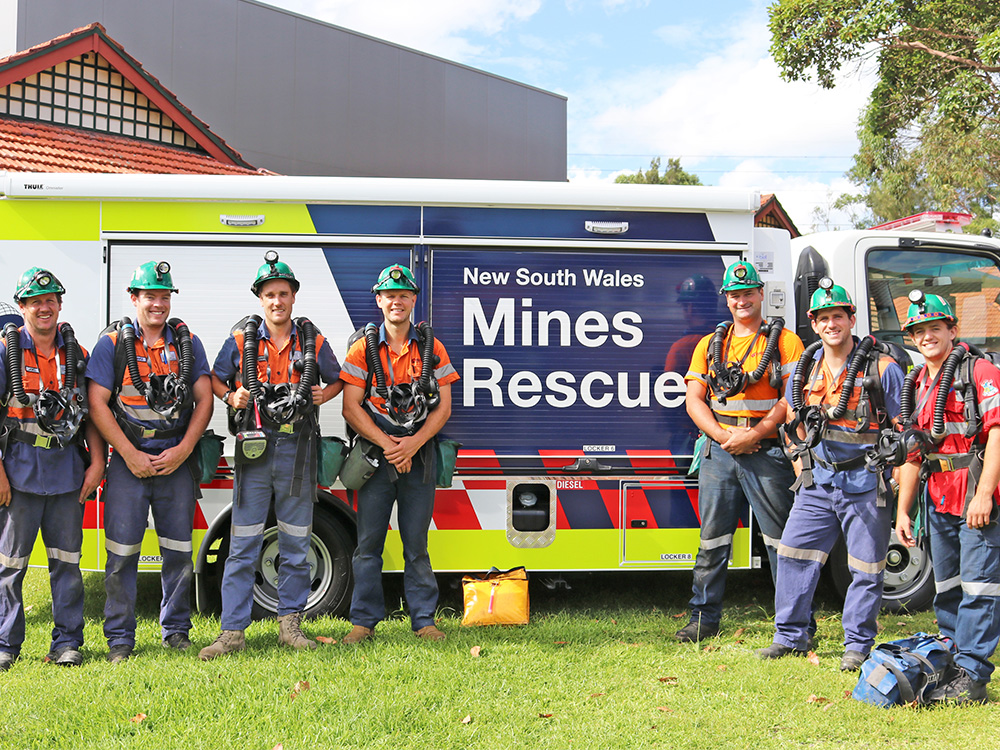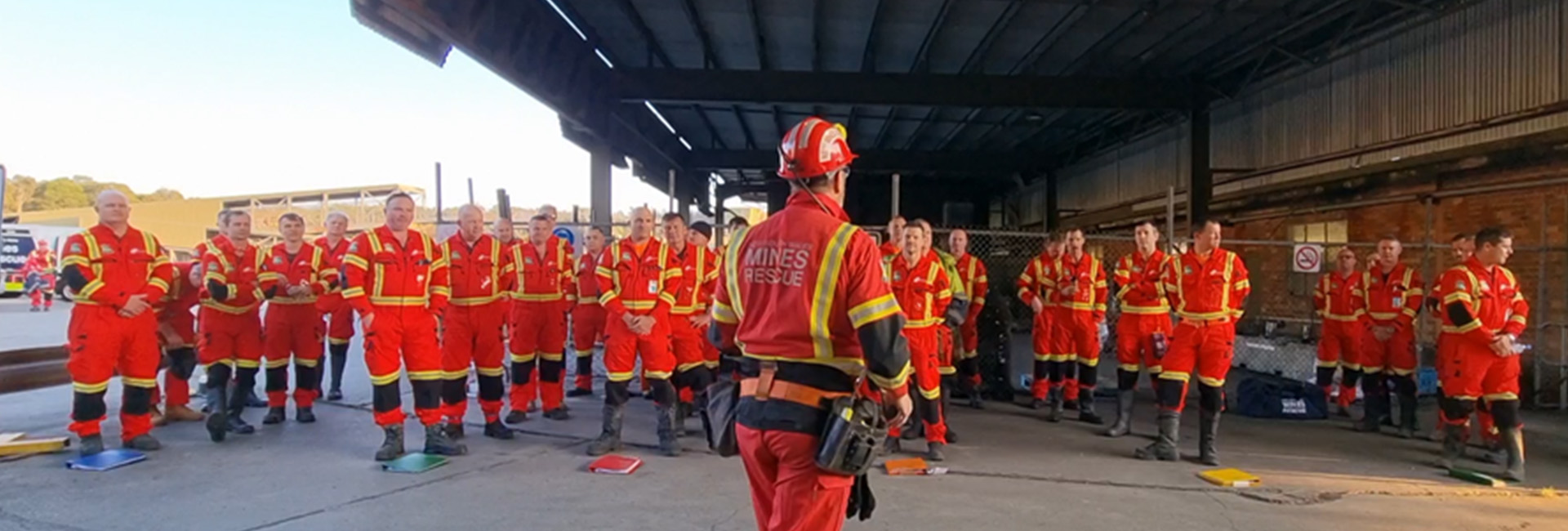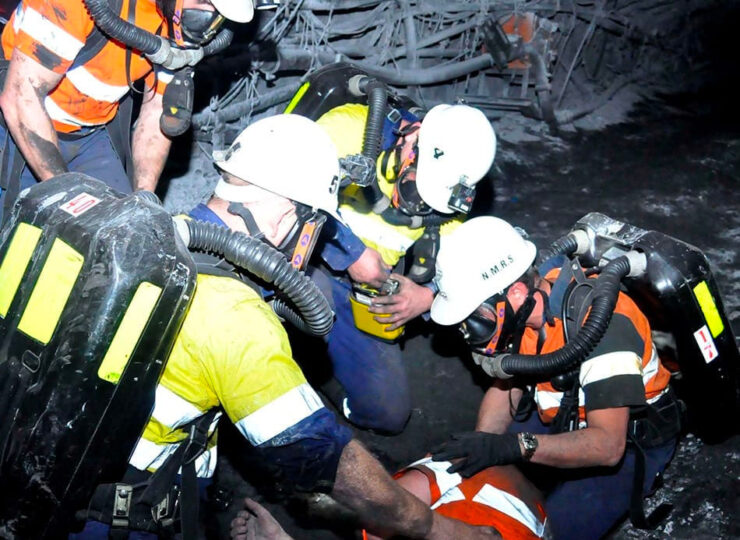On this page
Overview
The Mines Rescue brigade members provide a rescue service for responding to and dealing with emergencies arising at coal mines in NSW.
No other emergency service within Australia is equipped to deal with incidents of this nature.
Under legislation, Mines Rescue must determine the number of persons employed at underground mines whose services must be made available for mines rescue purposes. Mines Rescue has determined that number is 5% of the workforce, including contractor equivalents. By delegation from the Board, the brigade is under the control and direction of the Mines Rescue service and specifically, in the event of an emergency, the Regional Manager or his delegate is present at the site.
Brigade members will conduct themselves in accordance with the objectives and procedures as determined for its deployment and by adopting standard operation procedure/sound rescue practice, specifically:
- to be properly briefed on their objectives, route, limitations and expected timing
- carry out their assigned task in a safe, efficient manner
- operate within their capability and capacity and observe established limits on exposure to flammable, toxic or hazardous atmospheres and substances
- observe standard operational procedure whilst in an environment immediately dangerous to life and health
- maintain communications with the Fresh Air Base (FAB) and/or surface control as required and return to the FAB within the assigned time
- to be properly debriefed on their observations and conditions encountered so that proper strategies can be developed for subsequent rescue, control, exploration and recovery/restoration activities
- ensure facial hair meets the requirements of AS1715
- maximum duty under oxygen is to be six hours in any 24 hour period. If hot and humid atmosphere is anticipated ensure brigade members can recognise and understand heat illnesses and sign on for each period of duty.

Rescue Brigade Members
In an emergency or training, situation rescue brigade members should ensure that they:
- obey all road rules and restrictions when travelling to the site
- advise the Rescue Co-ordinator or team captain if they are aware or become aware of any medical, physical or psychological condition or symptom, including coughs, colds and flu that could impair their capabilities or the safety of the team
- check team equipment and breathing apparatus prior to use
- advise the Rescue Coordinator and/or team captain if they are aware or become aware of any defect in apparatus that could impair their capabilities or the safety of the team
- carry out their assigned task in a safe, efficient manner and in accordance with the standard operating procedure.
NB: Participation as a brigade member in an active operation is on a voluntary basis.
Rescue Team Captain/Leader
In an emergency or training situation, the rescue team captain is responsible for the safe and effective conduct of their team. They should:
- maintain discipline
- allocate the checking of team equipment and breathing apparatus duties to team members prior to use
- ensure that the team’s assigned task is carried out in a safe and efficient manner in accordance with standard operational procedure/sound rescue practice and within the designated time
- report observations on conditions encountered so that proper strategies can be developed for subsequent rescue, control, exploration, recovery and restoration activities
ensure a brigade member is appointed prior to deployment to carry out the captain’s duty in the event of the captain being unable to do so and/or other responsibilities as delegated.
Training Dates
Brigades must complete six rounds of intensive training each year. Secure your training dates today.
Recruitment Information
Becoming a brigades member can be one of the most rewarding career decisions of your life.
Rescue Competitions
Held annually be each Mines Rescue station, high-pressure emergency response competitions are a unique opportunity for brigade members to sharpen their skills.
Share this page


